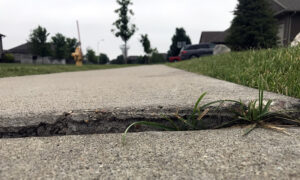HOA Debt Collection: Is The HOA Taking Advantage?
Consumers are protected by certain laws when it comes to debt collection. Chief among them is the federal Fair Debt Collection Practices Act. But, does this law apply to homeowners associations, too?
Fair Debt Collection Practices Act Definition
The Fair Debt Collection Practices Act (FDCPA) is a federal law governing the collection of debt. The law was passed by Congress in 1977 and aims to prevent deceptive, abusive, and unfair debt collection practices. According to the Act, debt collectors are not allowed to harass consumers or employ deceptive tactics when attempting to collect on their debts. In addition to what debt collectors can’t do, the Act also defines what debt collectors must do when attempting to collect a debt.
Are HOA Collections Governed by the FDCPA?
Homeowners living in HOA communities have an obligation to pay monthly dues to their association. The HOA then uses these dues to fund the many expenses required to keep the community in operation. These expenses can include but are not limited to maintenance costs, insurance premiums, and management fees.
Like any payer-payee relationship, though, HOAs are not immune to delinquencies. It is not uncommon for homeowners to default on their monthly fees. Usually, these delinquencies result in late fees, the suspension of privileges, and even lawsuits. In some cases, HOAs will also attach a lien to the delinquent owner’s property and even initiate foreclosure proceedings. Associations do all of this in an effort to collect the debt delinquent homeowners owe.
Sometimes, though, an association will also transfer the bad account to a third-party agency as part of its HOA debt collection policy. This is where the FDCPA comes into play.
In general, the FDCPA does not recognize homeowners associations as debt collectors. As such, the Act does not typically apply to them. The FDCPA only applies to debt collectors, i.e. any entity or individual whose primary business is to collect debt on behalf of third parties. So, while the FDCPA may not apply to HOAs, it does apply to the collectors HOAs employ. Many courts have also ruled that the FDCPA can apply to attorneys if it collects debts or unpaid dues on the association’s behalf.
Communication Standards for HOA Collection by Third Parties
According to the FDCPA, debt collectors must use any communication that even the “least sophisticated consumer” can understand. This standard is in place so that debt collectors don’t use fancy or complex language in an attempt to confuse or deceive the consumer. It offers protection to even the least experienced individuals. Additionally, using simple language also eliminates vague terms, which can lead to misunderstandings.
Adhering to this standard, the FDCPA requires debt collectors to provide the following communication to a consumer, either in oral or written form: “This communication is from a debt collector in an attempt to collect a debt. Any information obtained will be used for that purpose.” Every succeeding communication should then include either “This communication is from a debt collector,” or “this is an attempt to collect a debt.”
Following the initial communication, the debt collector must then provide the following within five (5) days in written form:
- Amount of debt owed;
- Name of the creditor;
- A statement saying that the consumer has 30 days to dispute the debt’s validity or else the debt will automatically be deemed valid by the collector;
- A statement saying that, if the consumer disputes the debt’s validity within the timeframe, the debt collector must then secure verification of the delinquency or a copy of the judgment. The collector must then mail a copy of that document to the consumer; and,
- A statement saying that the debt collector will provide the name and address of the original creditor if the consumer supplies a written request to do so within the 30-day period.
Prohibited Acts Under the FDCPA
In accordance with the FDCPA, banned acts include but are not limited to the following:
- Talking about the debt with any party other than the consumer
- Calling the consumer before 8 a.m. or after 9 p.m.
 Talking to the consumer when an attorney already represents them
Talking to the consumer when an attorney already represents them- Any acts of harassment or abuse, such as:
- Threatening the consumer with violence or other illicit acts
- Using profane or obscene language
- Making incessant calls
- Making false or misleading statements, such as:
- Falsely introducing themselves as an attorney
- Implying or stating outright that the consumer will face criminal charges upon failure to settle the debt
- Threatening the consumer with consequences that the debt collector can’t legally do
- Attempting to collect an unauthorized amount
Who Handles Fair Debt Collection Practices Act Violations?
Debt collectors have been known to abuse their position and employ illegal tactics. Consumers who don’t know the law well enough will sometimes fall prey to these unfair practices. If a consumer or homeowner believes they are a victim of FDCPA violations, they can file a complaint with one of the following agencies:
- Federal Trade Commission. The FTC is the main agency inc charge of enforcing the Fair Debt Collection Practices Act.
- Consumer Financial Protection Bureau. One of the CFPB’s many responsibilities is enforcing the FDCPA.
- State Attorney General’s Office. For state-level complaints, consumers can reach out to their State Attorney General’s Office. Go to their website for more information.
As per the FDCPA, consumers can file a federal claim for actual damages as well as additional damages up to $1,000. The claim can also include coverage for attorney’s fees and other reasonable costs.
Are HOA Management Companies Debt Collectors?
While all courts recognize HOA dues as consumer debt, there is some debate as to whether or not HOA management companies count as debt collectors. There is no universal answer to this, as situations should be evaluated on a case-by-case basis. That said, it really comes down to the primary purpose of the management company.
If an HOA management company’s primary services consist of collecting unpaid fees, then courts may deem it a debt collector. In that case, the FDCPA does apply to the management company and its practices. In contrast, if a management company’s primary focus is maintaining common areas, it might not fall under the FDCPA or what counts as a debt collector.
Something to Think About
The Fair Debt Collection Practices Act exists to prevent debt collectors from using unfair, deceptive, and abusive tactics when attempting to collect a debt. At face value, the FDCPA may not seem like something HOAs should worry about. But, considering the legal implications of associating with a non-compliant third-party collector, HOAs would do well to carefully select a collection agency.
Don’t want to outsource your collection efforts? Condo Manager makes dues collection and delinquency tracking easier with automated processes. Call us today at (800) 626-1267 or contact us online for a free demo.
RELATED ARTICLES:
- How Can Collecting HOA Online Payments Help?
- 7 Consequences Of Delinquent HOA Dues
- ACH Payments for HOA Dues: Should Your HOA Accept Them?



 While the homeowners association technically pays for HOA insurance, the funds really come from the owners. Homeowners have an obligation to pay
While the homeowners association technically pays for HOA insurance, the funds really come from the owners. Homeowners have an obligation to pay  Property Value and Replacement. Buildings that belong to the HOA must be insured for the property’s full replacement cost. There are three
Property Value and Replacement. Buildings that belong to the HOA must be insured for the property’s full replacement cost. There are three 
 Insurance Premiums. Homeowners associations have to maintain a number of insurance policies, including but not limited to a master policy, a D&O policy, crime insurance, and workers’ comp.
Insurance Premiums. Homeowners associations have to maintain a number of insurance policies, including but not limited to a master policy, a D&O policy, crime insurance, and workers’ comp. A homeowners association is bound by federal and state laws as well as its governing documents. In some states, an HOA can only increase its fees by a certain amount or percentage each year. For example,
A homeowners association is bound by federal and state laws as well as its governing documents. In some states, an HOA can only increase its fees by a certain amount or percentage each year. For example, 
 While cash donations are certainly helpful, they are a bit impersonal. Plus, there is more room for
While cash donations are certainly helpful, they are a bit impersonal. Plus, there is more room for  Your community can come together and offer free services as a way to give back. You can organize your own temporary food shelter where you can feed the hungry and the homeless. You can even use the car wash idea and offer it free of charge to anyone who wants their car cleaned. The possibilities are endless.
Your community can come together and offer free services as a way to give back. You can organize your own temporary food shelter where you can feed the hungry and the homeless. You can even use the car wash idea and offer it free of charge to anyone who wants their car cleaned. The possibilities are endless.
 Reviewing and amending the governing documents
Reviewing and amending the governing documents Community associations come in different shapes and forms. Whether or not an association needs the help of a professional manager will depend on its unique situation. There are many communities that get by just fine
Community associations come in different shapes and forms. Whether or not an association needs the help of a professional manager will depend on its unique situation. There are many communities that get by just fine 
 The shamrock has long been the symbol of St. Patrick’s Day. You will find it everywhere around this time of the year — from shoddy bar merchandise to your local arts and crafts store. It is even a popular party costume.
The shamrock has long been the symbol of St. Patrick’s Day. You will find it everywhere around this time of the year — from shoddy bar merchandise to your local arts and crafts store. It is even a popular party costume. According to Irish folklore, leprechauns were known as “lobaircin,” which translates to “small-bodied fellow.” The origin of leprechauns likely comes from the Celtic belief in fairies.
According to Irish folklore, leprechauns were known as “lobaircin,” which translates to “small-bodied fellow.” The origin of leprechauns likely comes from the Celtic belief in fairies.

 Architectural rules
Architectural rules
 Who doesn’t like receiving flowers on Valentine’s Day? The seniors in your community will certainly appreciate a bouquet of roses or tulips — or any other flower, for that matter.
Who doesn’t like receiving flowers on Valentine’s Day? The seniors in your community will certainly appreciate a bouquet of roses or tulips — or any other flower, for that matter. When you think of Valentine’s Day ideas for seniors, a game day is probably one of the last things that come to mind. But, older adults enjoy playing games just as much as younger ones.
When you think of Valentine’s Day ideas for seniors, a game day is probably one of the last things that come to mind. But, older adults enjoy playing games just as much as younger ones.
 For non-gated homeowners associations, sidewalks and roads likely fall under the jurisdiction of the local government. In that case, if an HOA receives a service request concerning sidewalks and roads, it is best to forward it to the correct authority.
For non-gated homeowners associations, sidewalks and roads likely fall under the jurisdiction of the local government. In that case, if an HOA receives a service request concerning sidewalks and roads, it is best to forward it to the correct authority. Proper landscaping can breathe new life into any space. The added greens and beautiful layout can significantly boost the curb appeal in a community.
Proper landscaping can breathe new life into any space. The added greens and beautiful layout can significantly boost the curb appeal in a community. Heating, ventilation, and air conditioning (HVAC) systems require regular maintenance. This will minimize the risk of a breakdown.
Heating, ventilation, and air conditioning (HVAC) systems require regular maintenance. This will minimize the risk of a breakdown.
 The
The  The accounts receivable report tells boards and owners how much is owed to the association. It is a summary of all the money the association expects to receive. It could include dues from homeowners, rental income from a facility, etc. This could also come in the form of an aging report, which shows how long each account has remained unpaid.
The accounts receivable report tells boards and owners how much is owed to the association. It is a summary of all the money the association expects to receive. It could include dues from homeowners, rental income from a facility, etc. This could also come in the form of an aging report, which shows how long each account has remained unpaid.
